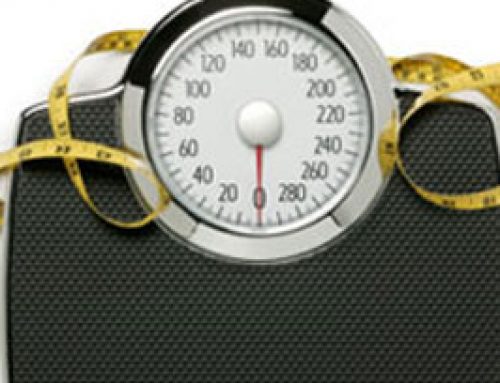They are needed by all persons, whatever their situation; child, grown up, old aged, pregnant, recovering from illness etc. The best prenatal vitamins are required by pregnant women so that care is taken for the growth and development of the baby and the mother’s requirements. They are best received from normal and natural diet sources like meat, poultry, fish, fruits and vegetables, grains, milk/dairy products. However, in most cases the dietary sources are not able to provide the recommended daily requirement. In such cases, vitamin supplements are required. Supplements products are also required if there is a deficiency in the levels of certain vitamins and minerals. These products are marketed in various forms: liquid, tablets, chewable tabs, ampoules. For people who feel nauseous, they can choose the type which is less nauseous to them.
During pregnancy, much emphasis is put on healthy eating plans which should provide good nutrients needed by the woman’s body. Such diet plans are developed while keeping in mind the requirement of the unborn baby also. So at an early stage of pregnancy you will require vitamins and supplements. In this webpage we discuss the best prenatal supplements that a pregnant woman would require. Folic acid, calcium and iron are the three important ones that are needed during this stage.

Folic acids
Folic acids are recommended as early as possible as it is of great benefits during the first months of pregnancy. However, most women will probably notice their conception after 3-4 weeks which is quite late. So if you are planning to have a baby, it is a good thing to start taking a daily dose of 400mcg folic acid before conceiving and to continue for the first months. Thereafter your doctor will provide more precise prescription of the medication and supplements that you need. Folic Acid is one of the most important ones as it reduces risk of neural tube defect and other complications of the brain and spinal-cord in babies by up to 70%. If there is high risk of having a baby with neural tube abnormality, the doctor may prescribe a higher dose of Folic Acid.
Dietary sources for Folic Acid:
Leafy Green Vegetables
Fruits (Citrus)
Beans and Nuts

Calcium
Calcium is required by the unborn for its bone development and growth. If the amount of Calcium is insufficient, the baby’s growth would consume most of the calcium taken by the women and thus resulting in a calcium deficiency for her own use. This may result in bone density problems.
Dietary sources of Calcium:
Milk
Dairy Products
Iron
Iron helps the carrying of oxygen in blood. Thisprenatal mineral is required by both the mum and her baby. Intake of this mineral will prevent anemia/low HB (low levels of red blood cells). It helps in against pre-term delivery, low birth weight of the baby and eventually reduce risk of still birth.

Prenatal Vitamins pack consist of:
Folic acid (Vitamin B) : daily dose of 400 to 800 mcg (micrograms)
Vitamin D: 400iu (international units)
Calcium (Mineral): 200-250mg (milligrams)
Vitamin C: 50-70mg
Zinc (Mineral): 15mg
Copper (Mineral): 2mg
Iron (Mineral): 17-30mg
Vitamin B6: 2mg
Vitamin B12: 6 mcg (micrograms)
Vitamin E: 10mg
Thiamine: 3mg
Tiboflavin: 2mg
Niacin: 20mg
Optional:
Omega3 fatty acid (Helps in brain development of the baby)
Docosahexaenoic acid (DHA)
Vitamins that should be avoided or controlled:
Vitamin A must be controlled
Women who are vegetarians/vegans or those having dietary restrictions (allergic to some foods, have diabetes, have food intolerance, religious/cultural related foods restrictions ) are among those who should take these supplements as their foods sources are most probably not fulfilling their daily requirements. Supplements having the above blend are a complement to your normal diet. It should not substitute your foods.
Prenatal supplements content is different from normal multivitamins combination being sold. The primary difference lie on the dosage of certain important elements. Prenatal version have a higher dose of Flic Acid, Calcium and Iron while Vitamin A is very lowly dosed or not included in prenatal vits.

Manage your stress level while pregnant by writing task lists and keeping your priorities in check. Try delegating some things to family or friends whenever you can. Chip away at your list throughout your pregnancy so that you will be ready when the baby arrives.
There are foods to avoid eating when pregnant, as they can harm the child. Don’t consume raw seafood, soft cheese or unpasteurized milk.
If you are planning to get pregnant, you should first see your physician for a checkup. Be sure you consult with a doctor if you are thinking about conceiving a baby, as you want to make sure you are healthy and have the ability to produce a healthy baby. If you are asked to make changes or take new steps, take action now.
Keep good oral hygiene while pregnant. This is something that you should do all of the time. However, while you are pregnant, it’s even more important. Pregnancy can leave you more vulnerable to gingivitis or gum disease. These problems can get worse if you don’t care for your teeth. Brush and floss twice daily in order to avoid any mishaps.

You have just read a lot of advise on being pregnant. You will probably find that everyone you know, and even some people you don’t know, will give you advise whether you want it or not. Make sure to listen to your gut, and don’t take any advise that seems to be harmful to you.




